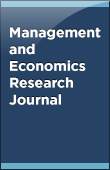


Monetary policies have a history of changing over time as central banks seek frameworks that suit the current state of their economies. In this research, the objective was to re-examine the famous Taylor rule (augmented to include the exchange rate) and proceed to establish its validity in the wake of recent unconventional policy developments from the United States. The Taylor rule posits that interest rates respond to the deviation of inflation from a given target and the output gap. The study is limited to five emerging market economies namely Brazil, Chile, Mexico, South Africa, and Turkey which are all inflation targeting economies with quarterly data observed between 1998 and 2020. Overall, the variables exhibited a mixed order of integration which necessitated the use of the ARDL bounds testing procedure in the time series framework. The study also invoked the panel vector autoregression model with impulse response functions computed using the local projections method. The study observed two main results. First, there is evidence that interest rates respond to inflation dynamics and demand fluctuations both in the short-run and long-run in most of these countries as predicted by the Taylor rule. Second, there is evidence of a significant association between policy rates and the exchange rate.
Read Article